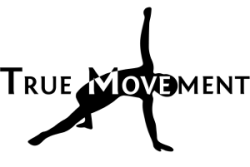Lessons from Ian Waterman
When Ian Waterman was 19, he contracted an incredibly rare disease of the nervous system, which left him completely unable to feel where his body was from the neck down. This disease had destroyed his proprioceptors, the sense organs that signal where the body is in space. There was no apparent physical damage and everything still functioned as it should, but Ian could not feel any of it. In many ways Ian had lost his body.
Ian’s condition was (and is) so rare that it completely confounded every medical professional he had seen for quite some time. It took 14 years before Ian met neurologist Dr. Jonathan Cole, a former student of the almost legendary Dr. Oliver Sacks. Yet during this time Ian was tremendously stubborn and determined to reclaim control his life.
Ian discovered that while he couldn’t feel what he was doing, he could still create motion by focusing on the individual steps needed to to accomplish a goal. He eventually learned that by incorporating his vision, he was able to control his body almost as if by remote control. Ian is especially remarkable in that he has learned to walk and move almost entirely independently, often performing fine motor tasks that would seem impossible given his condition.
On April 17th of 2013, I had the great pleasure of going to a talk about Ian’s incredible story with Ian as one of the speakers. What really struck me was just how natural Ian looked speaking with his hands. This is something I do unconsciously, often to express a thought or emotion. For Ian, every motion no matter how small must be thought, planned, and executed with conscious precision. Even a wayward gesture could throw him off balance and onto the floor.
When asked why he would take such a risk, Ian replied simply, “Because appearing normal is important to me.” This speaks to just how powerful our collective culture can be. Here is a man who must constantly live on the edge of his abilities just to stay upright, but he inches ever closer to that edge to create the appearance he values to reclaim some sense of normalcy. Is there something less obvious that we all do that’s like this too? I suspect so, but it requires looking for.
After I left the talk I waited for my friend in the lobby while he used the restroom, and Ian came by. I thanked him graciously for a wonderful talk, and Ian thanked me for the kind words. As he spoke Ian ever so gently reached out to touch my arm affirmingly. I know that Ian could not feel when he touched me; he could not even feel himself. Despite that, he must have felt it was important to show me he cared with this gesture. I was (and still am) emotionally quite taken by this experience.
If Ian were rude, mean, and depressed I don’t think many people would blame him. Every single day for him is a tremendous challenge. Yet Ian seems to embrace this challenge with kindness, courage, and a sense of humor. We could all probably stand to learn a thing or two from Ian.
To learn more about Ian Waterman I highly recommend the BBC documentary “The Man who Lost his Body”



I am humbled to read such generous comments..
Ian Waterman
The comments are no more than Ian deserves, I think.
For those interested we wrote his biography, Pride and a Daily Marathon, which was published in 1991 and can be ordered from MIT Press. Ian has helped me write the follow up, about the last 20 years plus, which is nearing completion. Provisional title; Guinea Pig’s Tale!
Ian and Dr. Cole,
I would have never dreamed either of you would find my writing. Your actions, words, and work give me pause whenever I reflect upon them. I am positive that I am not the only one who feels this way. It fills me with joy to know that you appreciate what I’ve said.